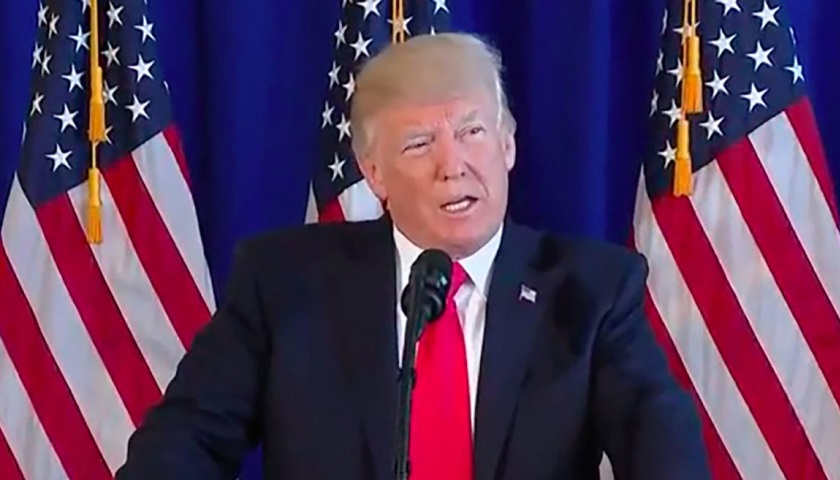President Donald Trump’s Monday morning announcement of a pending new trade deal with Mexico generated new intraday record highs in the stock markets.
Details of the negotiated arrangement are expected to be released soon. Most trade experts believe that a bilateral deal with Mexico increases pressure on Canada to make a deal with the U.S. as well. Renegotiation of NAFTA was one of Trump’s campaign promises.
Trump announced the tentative agreement with Mexico from the Oval Office with with Mexican President Enrique Pena Nieto joining by telephone. “It’s a big day for trade. It’s a big day for our country,” Trump told reporters assembled for the announcement. The deal could lead to an overhaul of NAFTA (North American Free Trade Agreement), though Trump indicated the new trade deal would have a new name.
Trump said he wanted to get rid of the name “NAFTA” because it has bad connotations. During the 2016 presidential campaign, Trump often railed against the trade pact as “the worst trade deal maybe ever signed anywhere.”
Star News Digital Media National Political Editor Steve Gill, a former U.S. trade official in the Bush and Clinton Administrations, said the deal still needs some work — and Congressional approval — before it is concluded. “But it will clearly change the trade flow with Mexico and likely force Canada to negotiate an agreement that will be more fair and beneficial to American workers as well,” Gill noted. “This deal also increases the likelihood that the tariff disputes that Trump is using to lower the barriers that are keeping U.S. goods and services blocked from foreign markets will get resolved quickly, too.”
The new agreement will focus primarily on automobiles made in Mexico that can be imported into the U.S. without tariffs.
The agreement will require that 85 percent of the parts in a car must be made in North America to be considered for tariff-free imports. The Trump Administration wants to insure that car parts from Europe and Asia, especially China, cannot be assembled into cars in Mexico and then imported for sale in the United States with low or no import taxes. Under the current NAFTA Agreement, about 62 percent of the parts in any car sold in North America must be produced in one of the three countries or automakers have to pay import taxes.
As part of the new deal, the U.S. will impose an import tax of 2.5 percent on cars that don’t meet the agreement’s terms on car parts from North America at existing car assembly plants in Mexico. Cars made at new plants could face higher tariffs of 25 percent.
The deal also imposes wage demands on Mexican manufacturers to prevent them from continuing to dramatically undercut U.S. wages in order to attract auto manufacturing across the border. It requires 40 percent to 45 percent of the imported automobiles to be made by workers earning at least $16 an hour in order to qualify for the zero tariff under NAFTA.




